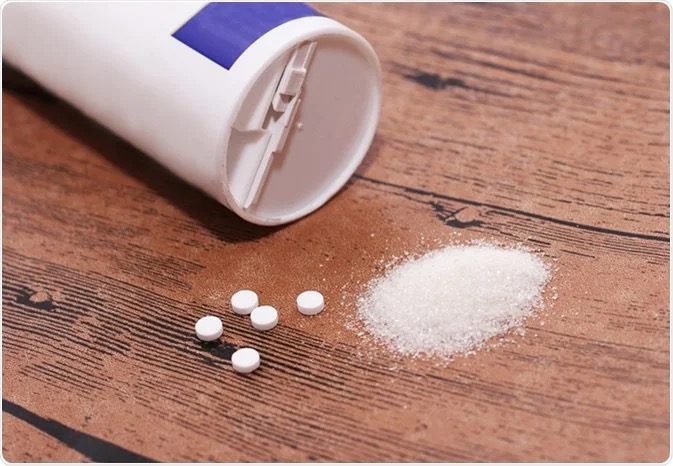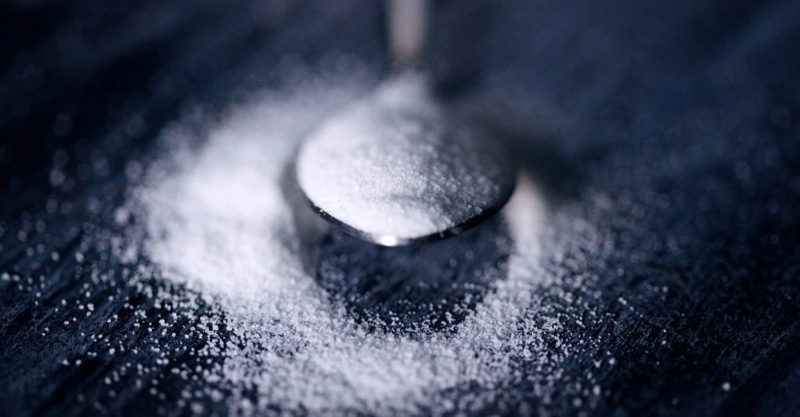Views: 222 Author: Sara Publish Time: 2025-08-19 Origin: Site








Content Menu
● Common Uses of Aspartame in Europe
● Emerging Concerns and the IARC Classification
● Consumer Reactions and Advocacy Campaigns
● The Precautionary Principle and Regulatory Outlook
● FAQ
>> 1. Is aspartame legal in Europe?
>> 2. What does the European Food Safety Authority (EFSA) say about aspartame?
>> 3. Why are some groups calling for a ban on aspartame in Europe?
>> 4. Which types of products commonly contain aspartame in Europe?
>> 5. Are there any health risks associated with aspartame consumption?
Aspartame is one of the most widely used artificial sweeteners worldwide. It serves as a low-calorie sugar substitute, offering sweetness approximately 200 times that of sucrose (table sugar). Since its introduction in the early 1980s, aspartame has been incorporated in thousands of food and beverage products aimed at consumers seeking to reduce caloric intake. Despite its popularity, the safety and legality of aspartame, especially in Europe, remain topics of intense debate and scrutiny, recently intensified by new scientific assessments and advocacy campaigns.

Aspartame is a synthetic compound composed of two amino acids—phenylalanine and aspartic acid—linked by a methyl ester. When consumed, aspartame breaks down into these amino acids along with methanol, all naturally occurring substances in many foods. It provides sweetness without the calories of sugar, making it attractive for diet sodas, sugar-free gums, low-calorie desserts, and many other processed foods.
Its use in European food products is designated by the food additive code E951. Manufacturers must clearly declare its presence on product ingredient lists. This transparency allows consumers to make informed choices, particularly important for individuals with phenylketonuria (PKU), a rare genetic condition causing intolerance to phenylalanine.
Aspartame is fully authorized for use across the European Union. The cornerstone of its regulatory approval is the European Food Safety Authority (EFSA). EFSA, an independent scientific agency, provides comprehensive evaluations of food additives based on toxicology, exposure levels, and the latest scientific data.
Aspartame has undergone several rigorous safety assessments by EFSA since its approval. The most comprehensive re-evaluation occurred in 2013 when EFSA reviewed new research and exposure data. EFSA concluded that aspartame is safe for the general population at current consumption levels, establishing an Acceptable Daily Intake (ADI) of 40 mg per kilogram of body weight per day. This ADI equates to a substantial amount of aspartame-containing products daily well above typical consumption patterns.
EFSA's safety opinion emphasized that neither aspartame nor its breakdown products pose a carcinogenic risk under these exposure conditions. Furthermore, EFSA highlighted that individuals with PKU must avoid aspartame because of phenylalanine content, but for the general population, consumption is safe.
Aspartame's presence in the European market is extensive. It is found in over 2,500 food and beverage products, including many household names such as Coca-Cola Zero Sugar, Pepsi Max, and Sprite Zero. Beyond sodas, aspartame sweetens sugar-free chewing gum, energy drinks, yogurt, powdered drink mixes, dessert products, pharmaceutical items like chewable vitamins, and oral hygiene products such as toothpaste.
The broad range of applications reflects the demand for sweetness without the calories associated with sugar or the tooth decay risks linked to sugar consumption. Aspartame fulfills consumers' desire for lower-calorie options while maintaining taste profiles close to those of traditional sweetened products.

Despite EFSA's affirmation of safety, concerns about aspartame have persisted, driven by some studies reporting potential links to cancer and other health issues. These concerns culminated in July 2023 when the International Agency for Research on Cancer (IARC), a branch of the World Health Organization (WHO), classified aspartame as "possibly carcinogenic to humans" (Group 2B).
The Group 2B classification means that there is limited evidence of carcinogenicity in humans and less than sufficient evidence in experimental animals. While not definitive proof that aspartame causes cancer, this label signals caution and the need for ongoing research.
This classification differs from the EFSA conclusion, reflecting different criteria and scopes of evaluation. IARC focuses on hazard identification, determining whether a substance could cause cancer under some conditions, whereas EFSA assesses actual risk considering typical exposure levels and consumption patterns.
The IARC classification sparked significant public concern in Europe. Several consumer advocacy groups, including Foodwatch (an international food safety NGO), the French Cancer League, and Yuka (a mobile app promoting food transparency), launched a joint petition calling for the European Union to ban aspartame. The petition highlights the potential cancer risk and urges policymakers to adopt the precautionary principle—prioritizing consumer safety amid scientific uncertainty.
The petition drew support across many European countries, such as Austria, Belgium, France, Germany, Italy, Ireland, Luxembourg, the Netherlands, Spain, Switzerland, and the UK. Advocates argue that alternatives to aspartame exist and that food manufacturers should transition toward natural sweeteners or approved substitutes with clearer safety profiles.
Simultaneously, consumer surveys indicated that approximately 40% of Europeans consume products containing aspartame regularly, underscoring the widespread exposure and potential impact of any regulatory changes.
Beyond carcinogenicity concerns, some research has suggested potential links between aspartame consumption and metabolic disorders. Epidemiological studies have explored associations with type 2 diabetes, weight gain, cardiovascular diseases, and alterations in gut microbiota. These findings remain mixed and sometimes controversial, with conflicting results between studies.
EFSA and many health authorities maintain that aspartame is safe within ADI limits, but continuous review and scientific vigilance are essential given its extensive use and exposure levels in the population.
The ongoing debate around aspartame epitomizes the challenges regulators face in balancing scientific evidence, consumer perceptions, and public health. The precautionary principle embedded in European food law advocates for taking preventive action even when scientific certainty is lacking, particularly for substances labeled as potential carcinogens.
However, regulators must weigh this principle against robust safety assessments like those conducted by EFSA. At present, no binding ban on aspartame exists in Europe, and its sale and use continue under existing regulations.
Manufacturers and consumers alike are watching regulatory developments closely. Should evidence strengthen indicating harm or if future evaluations shift the safety assessment, regulatory frameworks may adapt accordingly. In parallel, innovation in natural and low-calorie sweeteners continues, offering potential alternatives to traditional artificial sweeteners.
Aspartame remains authorized and broadly used in Europe as an artificial sweetener with a well-established safety profile according to EFSA. However, the 2023 classification by the WHO's IARC as possibly carcinogenic has intensified public concern and spurred campaigns seeking a ban on its use in foods and beverages. This classification, while not definitive proof of cancer risk at normal consumption levels, underscores the need for continued research and vigilance.
The regulatory environment in Europe continues to balance scientific assessments with consumer advocacy and precautionary measures. For now, aspartame is legal and considered safe within established daily intake limits, yet the debate is likely to persist as new data emerge and consumer preferences evolve. Food manufacturers offering natural sweeteners and functional ingredients may find growing opportunities amid this shift.

Yes, aspartame is currently legal and authorized for use as a food additive throughout the European Union. It is identified by the code E951 and must be labeled on products.
EFSA has repeatedly evaluated aspartame, most recently in 2013, and concluded it is safe for the general population at current consumption levels, establishing an Acceptable Daily Intake of 40 mg/kg body weight per day.
In 2023, the WHO's International Agency for Research on Cancer classified aspartame as "possibly carcinogenic to humans," prompting consumer advocacy groups to petition the EU for a ban based on the precautionary principle.
Aspartame is found in many diet and sugar-free products, including soft drinks, chewing gum, energy drinks, low-fat dairy, and some pharmaceuticals.
Some studies have suggested associations between aspartame and cancer risk, type 2 diabetes, cardiovascular issues, and gut microbiota changes, though regulatory agencies consider it safe within established intake limits.
[1] https://www.foodwatch.org/en/aspartame-a-possible-carcinogen-foodwatch-the-cancer-league-and-yuka-launch-a-european-petition-calling-for-a-ban
[2] https://pdf.dfcfw.com/pdf/h2_an202107091502722181_1.pdf
[3] https://www.euronews.com/health/2025/02/05/no-place-in-our-food-consumer-groups-launch-petition-to-ban-aspartame-in-europe
[4] http://money.finance.sina.com.cn/corp/view/vCB_AllBulletinDetail.php?stockid=301206&id=7370608
[5] https://www.efsa.europa.eu/en/topics/topic/aspartame
[6] https://www.foodtalks.cn/news/43250
[7] https://en.wikipedia.org/wiki/Aspartame_controversy
[8] https://cn.galamgroup.com/%E5%85%B3%E4%BA%8E%E6%88%91%E4%BB%AC/
[9] https://www.who.int/news/item/14-07-2023-aspartame-hazard-and-risk-assessment-results-released
[10] https://www.nestle.com.cn/sites/g/files/pydnoa496/files/csv/documents/2014/nestle-csv-report-chinese-version(2013).pdf
